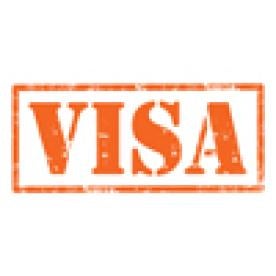A federal appeals court in Washington, D.C., has rejected U.S. Citizen and Immigration Services’ determination that “inherent knowledge a person gains as a result of his or her upbringing, family and community traditions, and overall assimilation to one’s native culture necessarily falls into the realm of general knowledge” and therefore cannot not considered “specialized knowledge” as required for L-1B, intra-company transfer visa. In its October 21, 2014 decision, the U.S. Court of Appeals for the District of Columbia Circuit reversed a district court’s decision granting summary judgment for the government and remanded the case for further proceedings. Fogo De Chao (Holdings) Inc v. U.S. Department of Homeland Security, No. 13-5301 (D.C. Cir. Oct. 21, 2014).
In 2010, Fogo de Chao applied for an L-1B visa on behalf of Rones Gasparetto, a Brazilian churrasqueiro, a restaurant employee who cooks a variety of meats on skewers resting on a support over charcoal embers or wood, in one Brazilian version of this food preparation technique. Mr. Gasparetto had been employed as a “Churrasqueiro Chef” in Sao Paulo, Brazil since May 1, 2007, and had worked in the same capacity in another of Fogo de Chao’s Brazilian affiliates from June 2006 through February 2007. He was able to perform the duties of “Churrasqueiro Chef” as a result of both his training with the company and his rural upbringing participating in the churrasco tradition in southern Brazil. USCIS concluded that the petition that Mr. Gasparetto’s culinary skills, knowledge of his native regional culture, and “authenticity” gained through his life experiences could not, as a matter of law, constitute “specialized knowledge” of the company’s product. The district court deferred to USCIS’ interpretation of “specialized knowledge under Chevron U.S.A., Inc. v. Natural Resources Defense Council, Inc., 467 U.S. 837 (1984). See Fogo De Chao Churrascaria, LLC v. Department of Homeland Security, 959 F. Supp. 2d 32, 44–49 & n.5 (D.D.C. 2013).
The appellate court, however, concluded that the USCIS determination, which had been issued through a non-precedential decision by the Administrative Appeals Office, was not entitled to deference. The court reasoned that nothing in the statute precludes culturally acquired knowledge from being taken into account as “specialized knowledge” for L-1B visa consideration. Similarly, the court found that established USCIS policy and guidance regarding “specialized knowledge” in no way categorically excludes cultural knowledge from this determination. This decision could broaden the range of professionals eligible for transferee specialized knowledge visas.





 i
i
